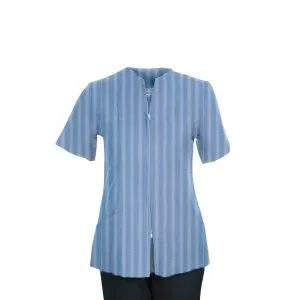When it comes to machinery, trolleys, carts, or various industrial and commercial applications, the choice of wheels plays a vital role in ensuring smooth operation and long-lasting performance. Among the many wheel types available, the nylon wheel with bearing stands out as a preferred option for many users due to its unique combination of durability, strength, and smooth movement.
In this comprehensive guide, we’ll explore everything you need to know about high-quality nylon wheels with bearings, why they matter, where they are used, and how to select the best one for your needs.
What Is a Nylon Wheel with Bearing?
A nylon wheel with bearing is a type of wheel made from durable nylon material, integrated with a bearing system inside its hub. The bearing, usually made of steel or stainless steel, allows the wheel to rotate smoothly with minimal friction. This combination enhances the overall performance by making the wheel more efficient and long-lasting.
Key Components:
- Nylon Wheel: The outer part that contacts the surface and supports weight.
- Bearing: The internal mechanism that facilitates smooth rotation.
The nylon material offers benefits such as resistance to abrasion, chemicals, and moisture, while the bearing reduces rolling resistance, leading to easier movement and better control.
Why Choose a High-Quality Nylon Wheel with Bearing?
Selecting a high-quality nylon wheel with bearing is crucial because it directly impacts your equipment’s functionality, safety, and maintenance needs. Here’s why quality matters:
1. Smooth Performance
The integrated bearing reduces friction between the wheel and the axle, allowing for smooth rolling and easy maneuverability. This is especially important in applications where frequent movement is necessary, such as in carts, conveyor systems, or industrial trolleys.
2. Durability and Longevity
High-quality nylon wheels resist wear and tear caused by constant use. When paired with durable bearings, they last much longer, reducing the need for replacements and downtime.
3. Load Capacity
Nylon wheels with bearings can support significant weight without deforming. High-quality wheels maintain their shape and performance even under heavy loads.
4. Corrosion Resistance
Unlike metal wheels, nylon wheels are naturally resistant to water, oils, and many chemicals, making them ideal for environments where corrosion is a concern.
5. Noise Reduction
Nylon wheels generally produce less noise than metal or rubber wheels, making them suitable for indoor environments like hospitals, schools, or offices.
Applications of Nylon Wheels with Bearings
The versatility of nylon wheels with bearing makes them useful across various sectors:
Industrial and Manufacturing
Used in factory equipment, assembly lines, and heavy machinery where reliable and consistent movement is required.
Material Handling and Logistics
Commonly fitted on trolleys, carts, pallet jacks, and conveyor belts to facilitate smooth transportation of goods.
Medical Equipment
Used on hospital beds, medical carts, and other healthcare tools where quiet, smooth, and clean operation is vital.
Retail and Hospitality
Shop carts, luggage trolleys, and other service equipment use nylon wheels to ensure ease of movement and durability.
DIY and Home Applications
Furniture sliders, tool carts, and storage units benefit from nylon wheels for better mobility.
How Does the Bearing Improve the Performance of Nylon Wheels?
Bearings inside the wheel reduce friction between the moving parts. Without bearings, wheels tend to have more resistance against the axle, which means more effort is needed to push or pull the equipment. Bearings act as a buffer, allowing the wheel to spin freely.
Types of Bearings Used:
- Ball Bearings: Most common, provide smooth rolling and can handle moderate loads.
- Roller Bearings: Used for heavier loads.
- Needle Bearings: For specialized applications with high rotational speeds.
When combined with a high-quality nylon wheel, bearings improve speed, reduce wear, and enhance overall efficiency.
Materials and Manufacturing of Nylon Wheels with Bearings
Nylon Material:
Nylon wheels are made from engineered polymers designed for strength and flexibility. The most commonly used is nylon 6 or nylon 66, chosen for:
- High abrasion resistance
- Impact resistance
- Chemical resistance
- Low moisture absorption
These properties make nylon an ideal wheel material, especially when combined with bearings.
Bearings:
Bearings used in these wheels are typically made of hardened steel or stainless steel to ensure longevity and corrosion resistance.
Manufacturing Process:
The wheels are molded or machined from nylon, and the bearing is pressed or inserted into the wheel hub with precision to ensure smooth performance.
Key Features to Look for in a High-Quality Nylon Wheel with Bearing
When selecting a nylon wheel with bearing, consider these important features:
1. Load Capacity
Make sure the wheel can handle the maximum load it will encounter. Always choose a wheel rated higher than your expected load for safety.
2. Wheel Diameter
Larger wheels roll more easily over rough surfaces but may add height to your equipment.
3. Bearing Type and Quality
Choose wheels with sealed bearings for protection against dust and moisture.
4. Tread Design
Smooth or ribbed treads affect grip and surface contact. Select the tread based on your application’s surface type.
5. Axle Compatibility
Ensure the bearing and wheel match your equipment’s axle diameter.
6. Temperature Resistance
Check if the wheel material and bearing are suitable for the operating temperature range.
Benefits of Using Nylon Wheels with Bearings Over Other Wheels
Compared to rubber, polyurethane, or metal wheels, nylon wheels with bearings offer distinct advantages:
| Feature | Nylon Wheel with Bearing | Rubber Wheel | Metal Wheel |
|---|---|---|---|
| Durability | High abrasion and chemical resistance | Moderate, wears faster | Very durable but noisy |
| Noise | Quiet operation | Quiet | Noisy |
| Load Capacity | High | Moderate | Very high |
| Maintenance | Low maintenance due to bearing | May need frequent checks | May rust or corrode |
| Smooth Performance | Excellent with bearing | Good | Less smooth |
| Corrosion Resistance | Excellent | Good | Poor unless treated |
| Cost | Moderate to high | Low to moderate | High |
Maintenance Tips for Nylon Wheels with Bearings
To ensure your nylon wheel with bearing performs at its best, follow these simple maintenance tips:
- Regular Cleaning: Remove debris and dirt that can cause bearing wear.
- Lubrication: Some bearings require occasional lubrication to reduce friction.
- Inspection: Check for cracks or wear in the wheel and replace if necessary.
- Avoid Overloading: Don’t exceed the rated load capacity to prevent damage.
- Environmental Care: Avoid exposure to extreme heat or harsh chemicals beyond the wheel’s tolerance.
How to Install a Nylon Wheel with Bearing
Installing a nylon wheel with bearing is straightforward but should be done carefully to avoid damage:
- Select the Correct Size: Ensure the wheel and bearing match the axle and mounting bracket.
- Clean the Axle: Remove any dirt or rust to allow smooth rotation.
- Insert the Wheel: Slide the wheel onto the axle.
- Secure the Wheel: Use appropriate washers, nuts, or clips to fix the wheel in place.
- Test Movement: Rotate the wheel by hand to ensure it moves freely without wobbling.
Buying Guide: Where to Find High-Quality Nylon Wheels with Bearings
Purchasing the right nylon wheel with bearing involves choosing a reliable supplier or manufacturer. Consider these factors:
- Reputation: Choose brands known for quality manufacturing.
- Product Specifications: Verify load capacity, wheel size, and bearing type.
- Customer Reviews: Check feedback to ensure product reliability.
- Warranty: Look for products with warranty or guarantee options.
- Custom Options: Some manufacturers offer custom wheels for specialized needs.
Online marketplaces, industrial supply stores, and direct manufacturer websites are good places to start your search.
Conclusion: Why Investing in a High-Quality Nylon Wheel with Bearing Is Worth It
Choosing a nylon wheel with bearing is an investment in smoother operation, durability, and overall efficiency. Whether for industrial machinery, medical equipment, or everyday trolleys, the right wheel can reduce maintenance costs, improve user experience, and extend the lifespan of your equipment.
When buying nylon wheels, always prioritize quality materials, well-designed bearings, and the correct specifications for your application. This attention to detail ensures your wheels deliver smooth performance day after day.
FAQs
Q1: Can nylon wheels with bearings be used outdoors?
A: Yes, nylon wheels are resistant to moisture and chemicals, making them suitable for outdoor use, but check for UV resistance if exposed to direct sunlight for prolonged periods.
Q2: How often should I replace nylon wheels with bearings?
A: Replacement depends on usage and load, but regular inspection every 6-12 months is recommended for heavy-use equipment.
Q3: Are nylon wheels with bearings noise-free?
A: They are quieter than metal wheels but not completely silent. Bearings help reduce noise significantly.
Q4: What is the maximum load capacity for nylon wheels with bearings?
A: Load capacity varies by size and bearing type but can range from a few hundred to several thousand pounds.
If you want a reliable, durable, and efficient wheel solution, consider a nylon wheel with bearing for your equipment. Its combination of nylon’s strength and the bearing’s smooth rotation offers unmatched performance for many applications.








Leave a Reply